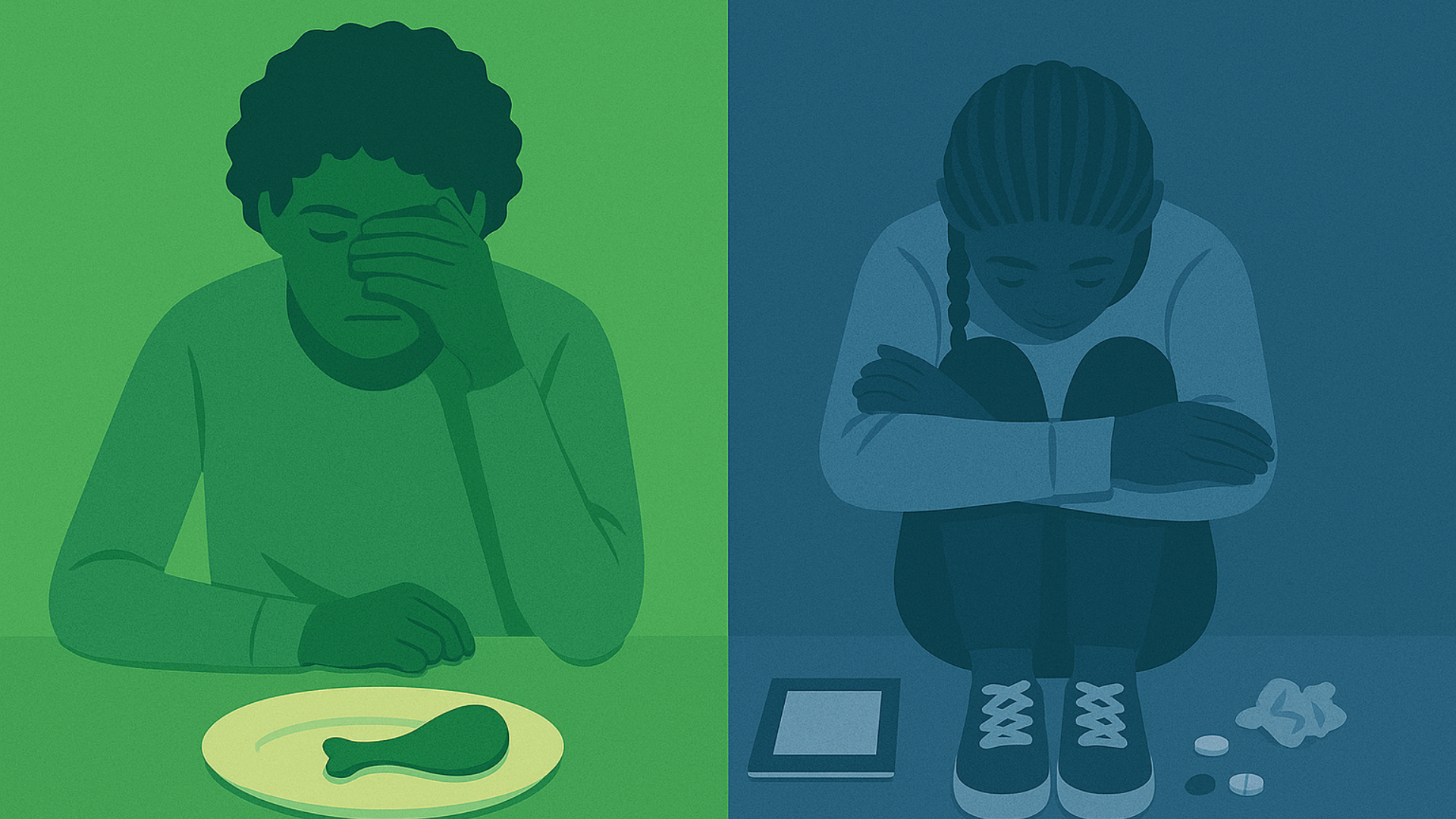Natalia’s Perinatal Mental Health Story

Former Thrive client, Natalia shared her perinatal mental health story with us. You can read about her journey below.
MY FIRST PREGNANCY
While giving birth to my first child in November 2017, I underwent long labor that ended in a C-section. My first idealized choice would have been to do a home birth, but I wasn’t able to do that. So instead, I worked with a birth center.
I was against having a C-section, so much so that I didn’t even go to the interventions section of my birth class. I told myself, “I’m not going to need that. I’m going to a birth center. Nothing is pointing me towards needing a C-section.”
My due date came and went, but I didn’t go into labor. Every day, I got more anxious. I began doing some gentle, natural induction exercises, but nothing worked. Finally, I was able to naturally induce the birthing process, but I remained in prodromal labor for a long time.
At the birthing center, I labored for ten hours. My state did not allow individuals to be under the care of a birthing center for more than 42 weeks, and I was approaching that deadline, so I moved to the hospital. At the hospital, a cascade of interventions followed that ended in a C-section.
Having a C-section after so many hours of labor — a couple of days at home, ten hours at the birth center, and seventeen hours at the hospital — was difficult to heal from. When I returned home, I suffered from severe postpartum depression and anxiety that was left untreated.
MY SECOND PREGNANCY
In May of 2020, we moved to Reno. Only a couple of months prior, I’d found out that I was pregnant.
While I was setting up my healthcare, I discovered Thrive Reno’s Perinatal Mental Health Support Group and began attending. It was exactly what I needed. I was pregnant. I had postpartum depression and anxiety after my last pregnancy. I was hoping to have a vaginal birth. I’d just moved to the city. Not to mention, the pandemic was raging. The group provided me with a community that supported me throughout my pregnancy.
My daughter was due on September 20. By Christmas Eve, I was still pregnant. That morning, I had a doctor’s appointment. The doctor sent me to the hospital for extended monitoring. Almost as soon as I walked through the door, they began talking to me about a repeat C-section, which was the opposite of what I wanted.
Christmas Eve fell on the same day as Thrive’s Perinatal Mental Health Support Group, so I called into the group from the hospital. Connecting with people who knew my story was so helpful.
I ended up having a repeat C-section. It was Christmas, and my son was expecting us, so I pushed the hospital to release me. They let me leave 48 hours after giving birth — the minimum length of stay for someone who’s had a C-section.
I expected to experience the same symptoms of postpartum depression and anxiety that I’d struggled with after my first pregnancy, but this time the symptoms were more severe and came on faster.
I had wanted a girl, so I was excited. I was also happy that my daughter was safe and healthy. But I was devastated about having another C-section. Anytime that I thought about it, got dressed, took a shower, or looked in the mirror was extremely difficult. I ended up attending Thrive Reno’s It Takes a Village perinatal day program .
IT TAKES A VILLAGE
Initially, I wrestled with whether to attend the program. I remember thinking that I could deal with my symptoms on my own. I wasn’t sure if I needed a day treatment program. Additionally, I wanted to get used to being a mom of two. I wanted to just be with my baby, but just being with my baby was hard for me too.
When I finally decided to attend the program, I was excited and terrified. The experience transformed me in so many ways. The groups were comprehensive. They allowed me to explore how my life and the world around me were affecting my postpartum period. It was life-changing.
Connecting with other parents and hearing their stories was also helpful. I waited several weeks to tell my birth stories. But there was another person in the group who’d had a C-section. When she told her story, the other group participants said things to her that were exactly what I needed to hear. The moment was a turning point in my healing process.
After a few weeks, I dove in. I was able to open up, ask questions, and share my experiences. There were so many rich discussions and opportunities to talk not just about being a mom, but about my family system, my childhood, and ways I want to parent that weren’t accessible to my parents.
The program helped me be a better mom. From the cognitive-behavioral therapy and dialectical-behavioral therapy skills groups, I learned strategies to refrain from catastrophizing and remain in the moment instead.
One of the most impactful takeaways from the program was learning to avoid making generalized value judgments about myself. In other words, instead of viewing myself as a bad mom because I misplaced something, I say, “Wow I made a mistake, and I’ll do better next time.” Initially, I was resistant to even the idea of giving myself grace. But over time I realized that by giving myself grace, I can stop the spiral of negative thoughts.
I’m also a gentler parent. I’ve always believed in the gentle parenting style, but I couldn’t embody it before. I had too many other things going on in my mind. Because I’ve had this space and time to process my emotions, I’m a kinder, calmer parent.
The shift into motherhood and then the subsequent shift into becoming a mother of two was so disorienting. I wasn’t doing that well with it by myself. The It Takes a Village program provided me with a supportive, warm environment to do the deep self-work necessary to explore what was going on with me as a parent and as a person.
There’s an idea that one’s mental-emotional state has to be severe before deserving professional support. There’s a range of experiences related to birth and becoming a parent. Even if you think that you can deal with all of it, you shouldn’t have to deal with it alone.
The post Natalia’s Perinatal Mental Health Story first appeared on Thrive Wellness.








